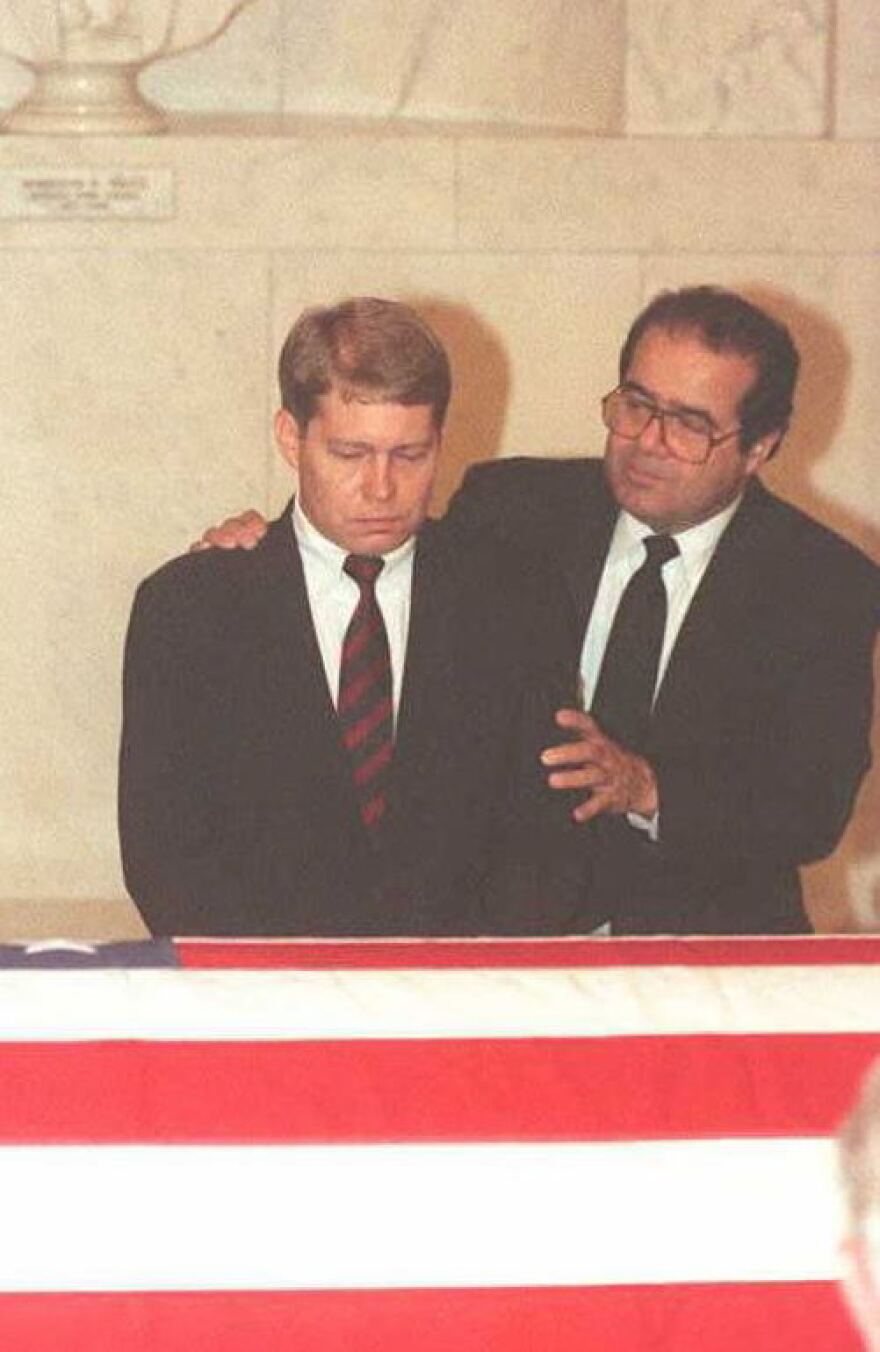Retired federal Judge J. Michael Luttig, testifying in front of the Jan. 6 House committee, was questioned Thursday by one of his former law clerks about the role of another in the insurrection.
Committee senior counsel John Wood noted the dynamic before proceeding to question Luttig about the role of fellow former clerk John Eastman in efforts to pressure then-Vice President Mike Pence to overturn the results of the 2020 election.
Luttig, a widely respected conservative judge who sent dozens of clerks to the Supreme Court after almost being nominated for the bench himself, had advised Pence to reject the advice of that same former clerk — Trump ally Eastman.
Law professor and former acting U.S. Solicitor General Neal Katyal called the scenario "the nightmare for every federal law clerk ever."
"I think of the two judges for whom I clerked akin to my parents, and every one of the clerks part of the family," Katyal tweeted.
Luttig served as a federal appeals court judge for 15 years, earning a reputation as one of the country's most prominent and conservative judges, as NPR's Nina Totenberg has reported. He was frequently mentioned as a possible Supreme Court nominee himself in the Bush administration and sent more than 40 clerks (known as "Luttigators") into Supreme Court clerkships. Of those, 33 worked for Justices Antonin Scalia and Clarence Thomas.

"This nonsense, this utter madness"
Another one of Luttig's clerks was Sen. Ted Cruz, R-Texas, a staunch Trump ally who has downplayed the events of Jan. 6 and publicly criticized the committee hearings. The two appear to have been close — Cruz described Luttig in 2016 as being "like a father to me."
Luttig has broken with Cruz and some of his other high-profile proteges as an increasingly outspoken critic of Trump and the Republican Party.
He told the Los Angeles Times earlier this year that several final straws prompted him to action:
That more Republicans aren't standing up to "this nonsense, this utter madness," is "the definition of failed leadership," he added.
The 68-year-old, with his son's help, had set up a Twitter account just weeks before Jan. 6 and turned to social media to try to help Pence reject Trump's request to overturn the election results.
"The only responsibility and power of the Vice President under the Constitution is to faithfully count the electoral college votes as they have been cast," he tweeted on the morning of Jan. 5. Pence cited that thread the next day in his letter explaining why he certified the results.
Luttig has remained active on Twitter ever since and has frequently used it to troll former clerks like Cruz and Eastman, who have been friends since clerking together in 1995.
In one thread, Luttig called Eastman's legal analysis "incorrect at every turn." In another, he commented on a video of Cruz saying that then-Supreme Court nominee Ketanji Brown Jackson would be "the most extreme and furthest left justice to ever serve" on the court:
"I would not hesitate to retract my endorsement of Judge Jackson for the Supreme Court if there were anything at all to Senator Cruz's statement, but there is not," Luttig wrote. "In fact, quite the opposite is the case."
Luttig is working to overhaul the Electoral Count Act
Luttig has also criticized Cruz offline for his role in the events leading up to the Capitol riot.
"Once Ted Cruz promised to object, January 6 was all but foreordained, because Cruz was the most influential figure in the Congress willing to force a vote on Trump's claim that the election was stolen," he told The Washington Post in March. "He was also the most knowledgeable of the intricacies of both the Electoral Count Act and the Constitution, and the ways to exploit the two."
Luttig said Cruz's actions show the need to overhaul the 1887 Electoral Count Act to prevent a single senator from having such an outsize influence on the outcome of a presidential election. Luttig is working with lawmakers to rewrite the act.
"Such is Republican politics of the moment, that presidential and congressional aspirants will purchase the former president's blessing and approval at any price," Luttig told the Post.
Copyright 2022 NPR. To see more, visit https://www.npr.org.



